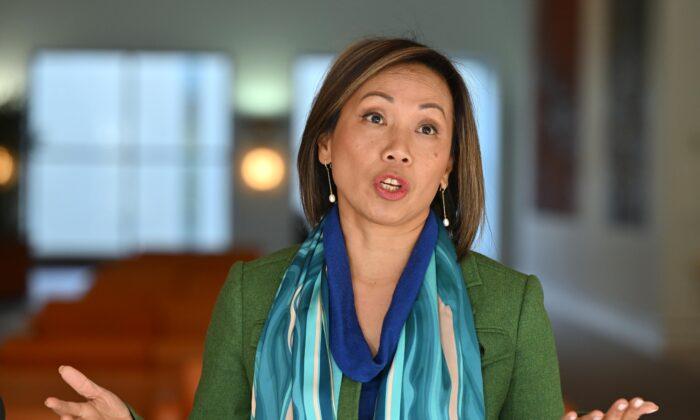Independent MP for Fowler, Dai Le, has warned that any government campaign aimed at reducing the incidence of male-on-female domestic violence must be “mindful of language ... because not all men are violent.”
In moving to address the increasing numbers of women losing their lives, she warned that Australia must not “alienate one group from another.”
“I’m a mother of a son. I know that we have to be mindful of our language because not all men are violent, but how we are portraying it is that men are violent against women,” she told ABC.
“How do we include the young men in our society? How do we make sure they’re educated to respect and to work alongside women? [So they] don’t feel like we are saying they’re the bad ones there.
“What language are we sending out to young men growing up in this day and age?”
Her comments come amid a weekend of protests around the country to raise awareness of domestic violence. Ms. Le placed responsibility for the increase of violence on social media.
“We’re seeing increased violence in society, increased violence against women. And we wonder why. I think the content of social media, and I think that we need to make sure that our young people in particular are not exposed to this kind of violent content constantly because that is actually influencing them,” she said.
“In particular in this day and age whereby people are feeling so disconnected [from their] own communities, I support that kind of violent content not to be continually shared.”
Ms. Le supported the government’s position against holding a Royal Commission, saying it was not the answer.
“I don’t know if another Royal Commission would do any good. What I think the government needs to do is get the funding targeted to communities that are experiencing high domestic violence and get them implemented,” she said.
Communities Escaped Terror
Meanwhile, Ms. Le, who is Vietnamese-born, also cautioned against labelling violent acts as terrorism too quickly, lest it damage multicultural cohesion.This followed the stabbing of an Assyrian Orthodox bishop by a teenager, which the police swiftly called a terrorist act motivated by extremist religious ideology.
“The police in our area have had challenges working and connecting with the young people in our community. And over the decades we’ve had Vietnamese refugee kids and now we have kids from Iraq that are feeling very much disconnected from society in the first place. Feeling like they don’t belong, feeling that they can’t even connect with their own parents and in the home because they’re growing up here,” Ms. Le said.
“Many of our communities who escaped tyrannical regimes are feeling like, with that word [terrorism], what it brings on is that people feel like terror has followed us now. And that will actually make people live on the edge.
“I hope that [police] know what they’re doing when they label a criminal act with such a label, and that that they will reassure our community as soon as possible to ensure [so] that people who have escaped terrorism from the Middle East feel that they’re safe here,” she said.
“Do we have people with expertise, who have a different faith, a different cultural background and different lived experience giving that advice within that space? Or are [the] group of people mainly Anglo-Celtic?”






